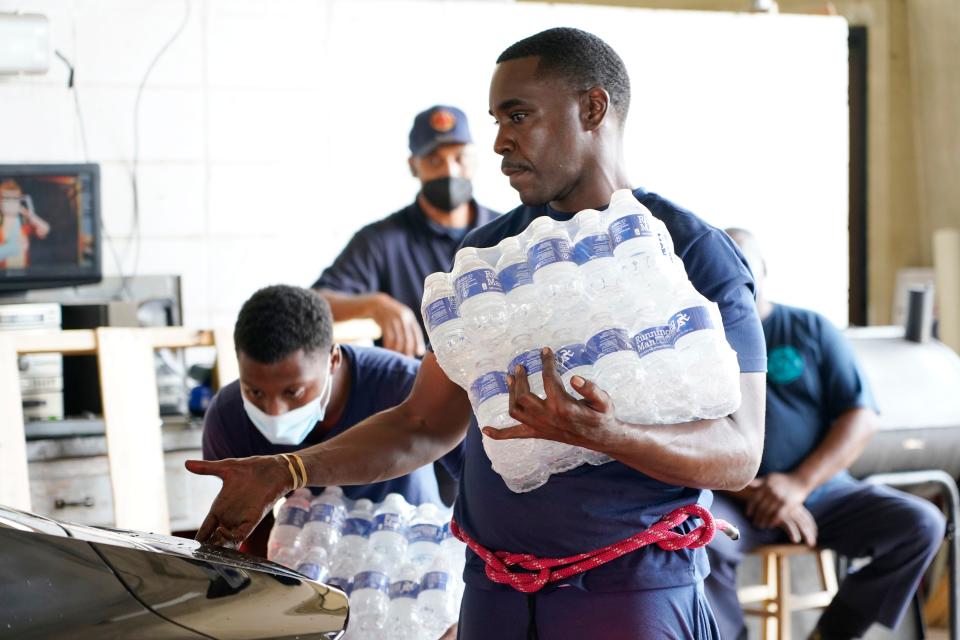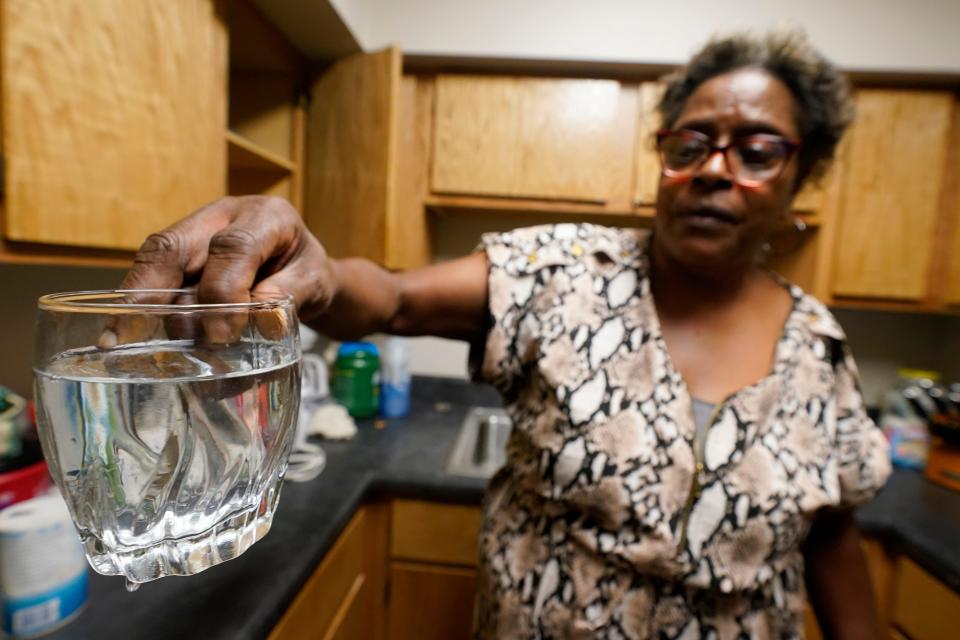Jackson’s water crisis isn't just a moment. It's a systemic catastrophe.
You’ve likely read about the water crisis in Jackson, Mississippi. For many in the country, this might be the first you’ve heard of what’s taking place. For those of us who are locals, it’s just the latest in a long line of infrastructure issues that have plagued our beloved city for years.
It’s also arguably the worst, given the especially fragile state of our most vulnerable populations after more than two years of the COVID-19 pandemic and a rocky economic recovery. Add to that our ineffective leaders and misconduct that has kept millions of dollars in aid from our poorest residents, and you have not just a crisis but a catastrophe.
Starting with the immediate problem, Jackson went over 40 days without clean drinking water; the 180,000 residents were under a boil water advisory. Recently, flooding worsened the issue with the Pearl River, which runs through the city, flooding and damaging the already fragile water pumps at treatment facilities, causing the fragile situation to become a crisis.
More than 80% of residents are Black
For many residents, there was not even reliable nonpotable water coming out of taps to boil drinking water, flush toilets, wash dishes or do laundry.
'Please don't forget about us': Jackson residents say the struggle for clean water is far from over
While water pressure has been restored, and the boil water notice lifted, many residents are hesitant. Massive misinformation has crippled community trust.
As the saying goes, when white people catch a cold, Black folks get the flu. And in a city that’s more than 80% Black, there are a lot of residents with the flu.
On top of not having safe water, kids were being kept home from school – causing a child care crisis for a population that has virtually no access to paid leave. In addition, many of the city’s Black residents work in Jackson's busy restaurants, which closed – putting them in a precarious financial bind. On top of not being able to afford to stock up on clean water, these folks are also facing layers of economic issues because of these failed systems.
Political infighting over budgets
One of the worst parts of this situation is that everyone knew it was coming. But political infighting over budgets has kept any meaningful action from happening. Early during the crisis, the governor and mayor gave separate briefings in Jackson on the situation but did not appear together.
The families I work with through my nonprofit, Springboard to Opportunities, do not have time for such foolish power plays. According to demographic data from the housing community Springboard serves, residents of Jackson’s subsidized housing are making an average of under $12,000 per year for a family of four. They needed meaningful help years ago.
For those I serve, who are almost all Black residents living in extreme poverty, water is the first domino toppling over all the others in their paycheck-to-paycheck lives. With no safe water, schools went virtual. For a population that rarely has access to paid leave or the option to work remotely, this caused a child care and learning crisis.
What happened in Jackson? Flooding broke open Jackson's water crisis, but it can't be disentangled from race, experts say

One mother, Tameka, was grateful when told by her job that she was going to be able to work from home due to the switch. The morning she was supposed to start working remotely, they called to tell her they needed her to go to the office for a few hours. She didn’t have any options for immediate child care and was forced to leave her kids at home while she went to work. She was terrified someone would call child protective services on her for neglect.
Another mother, Shadiaiyia, worried about feeding her family. Like so many families living in poverty, she relies on the school system for meals for her kids because her food stamp benefits run out before the month is done. She was extremely concerned about her ability to have enough food for her kids.
And for folks living on extremely tight budgets, internet access and electronics needed for virtual learning are not a given. Raven, another mother, wasn’t able to pay her internet bill last month because she had to prioritize rent and other needs first. Her daughter was unable to participate in school because there were no alternate internet options available for her.
Our policies – and politicians – have failed
All of these situations, this extreme stress these families are under, were fully preventable. Our politicians and policies have failed our people. Most notably, Mississippi’s massive TANF (Temporary Assistance for Needy Families) program implemented extreme restrictions on those it was meant to support, resulting in most of our residents not even bothering to apply for it as they were so often rejected.
Now, the program is mired in deep controversy. It has come out that while poor families were being denied aid 99% of the time, officials were allegedly embezzling millions to their own pet projects or in fake speaking gigs to celebrities.
Just this week, news broke that our state’s former governor directed football star Brett Favre on how to defraud the government of money intended for Mississippi’s poorest residents, according to text messages in a lawsuit. It appears that those at the highest levels of our state’s government were actively participating in stealing money intended for our poorest residents, who – due to centuries of systemic racism – are overwhelmingly Black.
More: Brett Favre welfare scandal shows that former QB's image is a fraud, too
More: Tempted to push for tough-on-crime policies? You need to meet these 3 people.
Residents of majority-Black states and cities are sadly accustomed to these failures, layered one on top of the other to create an impenetrable wall that keeps our communities from thriving.
Eight years later, residents of Flint, Michigan – another predominantly Black city – still don’t have clean water. But with climate change, crumbling infrastructure and weak leadership, it’s clear cities like Flint and Jackson are canaries in the coal mine for what will surely become more widespread crises across the country.

We have solutions at hand
Voting in leaders who care about all their constituents, and not just the ones who share their political views and with the funds to donate to their campaigns, is one important step. But as someone who has spent a career working within the social safety net, the most critical move we can make is to lift the red tape on our current programs, and to provide more of them.
Opinion alerts: Get columns from your favorite columnists + expert analysis on top issues, delivered straight to your device through the USA TODAY app. Don't have the app? Download it for free from your app store.
If residents living in poverty had access to TANF as they intended, they’d have more financial stability to weather a crisis like this. If SNAP didn’t have limits on what people could buy, parents could feed their kids without worrying about running afoul of the program’s many restrictions. In addition to loosening the paternalistic grip on our policies, we should adopt new ones – such as the expanded child tax credit.
To ensure situations like what we’re experiencing in Jackson remain the exception and not the norm in this country, we need leaders who will make the wholesale changes necessary to our systems and structures to ensure that one domino falling does not topple the entire lives and livelihoods of our most vulnerable.

Aisha Nyandoro is the chief executive officer of Springboard to Opportunities, where she oversees the Magnolia Mother's Trust guaranteed income program for Black mothers living in extreme poverty.
You can read diverse opinions from our Board of Contributors and other writers on the Opinion front page, on Twitter @usatodayopinion and in our daily Opinion newsletter. To respond to a column, submit a comment to letters@usatoday.com.
This article originally appeared on USA TODAY: Jackson’s water crisis shows how Black communities are failed

